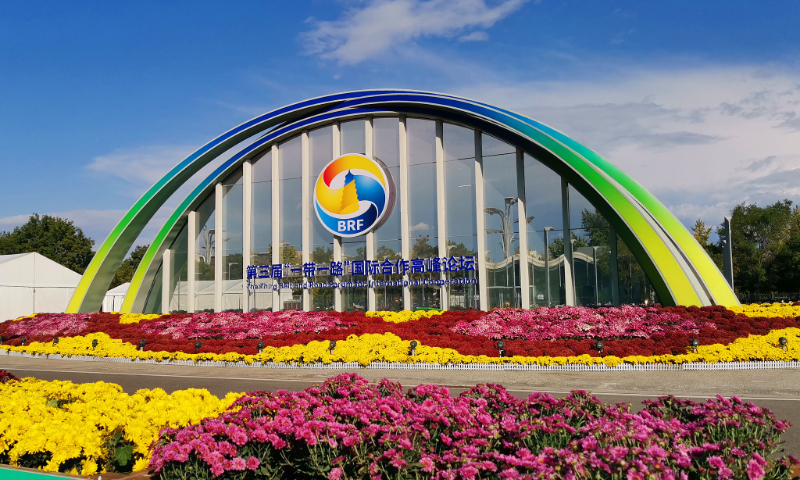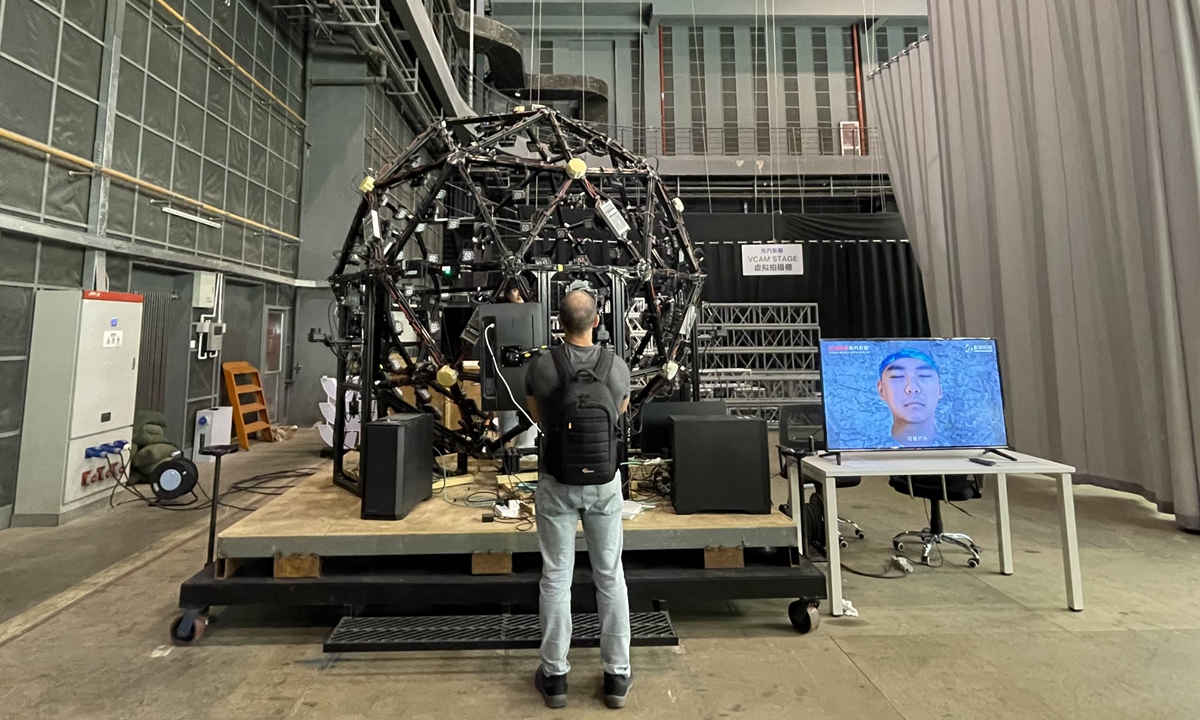
The streets of Beijing are decorated to welcome the third Belt and Road Forum for International Cooperation. Photo: VCG
The China-proposed Belt and Road Initiative (BRI) has been instrumental in promoting connectivity between China and Central and Eastern European (CEE) countries, helping their economies to diversify, and fostering bilateral ties, business representatives from the bloc said on Tuesday. They also expressed high hopes that the cooperation will become "deeper" and "greener" as the high-quality BRI cooperation enters a new stage of development following its 10th anniversary.
Scoping the achievements of BRI in the past decade, Mario Rendulić, president of the presidency of Chinese Southeast European Business Association, told the Global Times on Tuesday that BRI has "provided a framework for enhanced cooperation, trade, and investment between China and the CEE region."
Rendulić was speaking on the sidelines of the ongoing third Belt and Road Forum (BRF) for International Cooperation, which is being held in Beijing from Tuesday to Wednesday. The forum was convened not only for the 10thanniversary of the BRI, but also because the China-CEE Cooperation mechanism, which was established in 2012, entered its second decade this year.
To date, the majority of CEE countries have signed a Memorandum of Understanding (MoU) on the BRI with China.
According to Rendulić, the cooperation mechanism, running in parallel with the BRI, has played a significant role in facilitating dialogue and cooperation in various areas, including infrastructure development, finance, agriculture and tourism.
Since 2012, the trade volume between China and CEE countries expanded at 8.1 percent in annual terms, and bilateral investment has neared $20 billion to date, data from the Ministry of Commerce showed.
Implementation of flagship BRI projectsin the CEE,including the Port of Piraeus in Greece, the Budapest-Belgrade railwayand the China-Europe freight train, havehelped CEE countries including Hungary, Poland and Slovakiato become important logistics destinations in Europe.
On the sidelines of the BRF on Tuesday, CRRC Changchun Railway Vehicles Co and Serbia's Ministry of Construction, Transport and Infrastructure inked a contract for the procurement of high-speed trainsneeded for the Hungary-Serbia Railway,marking another important moment in BRI infrastructurecooperation between China and the CEE.
Rendulić, who is also the procurator of Croatia-based contractor Tehnikad.d., said his company has cooperated with a number of Chinese companies, such as China Construction, on various BRI infrastructureprojects in Croatia and Eastern Europe in the past ten years, including the SEZ Green European Industrial Park project in Croatia.
"Chinese companies are often at the forefront of technological advancements in various sectors. [BRI] cooperation with Chinese companies can provide opportunities for technology transfer, knowledge sharing and capacity building,"Rendulić said, when illustrating the vast opportunities the initiative has opened up for CEE companies.
He also took note of rising third-party market cooperation with Chinese firms under the BRI, which providesthem with "access to new markets and opportunities for business expansion."
Having participated in the BRF's first and second editions, Rendulić noted that this year's third edition is "built on the progress and experiences of the previous ones," and is thus widely expected to offer a platform for participating countries to chart the future course of the BRI, with an emphasis on quality and sustainabledevelopment.
"The BRI blueprint will encourage environmentally friendly infrastructureprojects, renewable energy investment and the adoption of green technologies in the CEE region,"Rendulić said.
Like Tehnika, a number of CEE companies have participated in this year's BRF, mirroring a dynamic environment for BRI global cooperation despite certain politicians'geopoliticalcalls for"de-risking" and discord created by certain CEE countries like Lithuania. While there may be some calls for "de-risking," it is not a mainstream approach across the entire CEE region, according to Rendulić.
Observers also anticipate the China-proposed initiativewill play a more pivotal role in regional integration amid rising geopolitical tensions, and serve as a booster for China-CEE relations as well as a stabilizerforChina-Europe relations, which are now at a crossroads.




